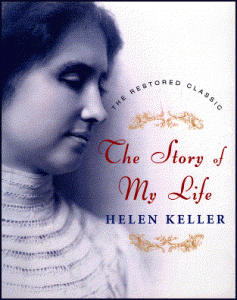Looking Ahead: Curriculum Musings
I don’t think I normally begin thinking beyond our current schoolyear this early. But yesterday the less-than-perfect aspects of my fourth-grader’s experience this year spurred me online to investigate some materials, and I found myself laying an entire tentative plan for next year.
 Both girls will be doing earth science and astronomy next year, at second and fifth grade levels. The astronomy decision is easy: Real Science-4-Kids. Our experiences with pre-level 1 chemistry and level 1 physics have been quite positive — even though not all the experiments in physics worked for us, and the math was pretty difficult for a fourth grader. The material is always very solid and challenging, and I like the layout of the courses: a chapter of the text on science day 1, an experiment on day 2. And the materials have gotten much more affordable now that they can be downloaded digitally.
Both girls will be doing earth science and astronomy next year, at second and fifth grade levels. The astronomy decision is easy: Real Science-4-Kids. Our experiences with pre-level 1 chemistry and level 1 physics have been quite positive — even though not all the experiments in physics worked for us, and the math was pretty difficult for a fourth grader. The material is always very solid and challenging, and I like the layout of the courses: a chapter of the text on science day 1, an experiment on day 2. And the materials have gotten much more affordable now that they can be downloaded digitally.
I also like that the program doesn’t have a religious agenda. It examines the subject without getting into issues of faith that are outside the scope of science. My faith shapes the perspective and assumptions with which I approach everything, including science. But the basic process of scientific method — observing, testing, observing again — should be the same for all of us, regardless of our beliefs. Part of the goal of science instruction is to teach a method, and I feel like RS4K teaches it well. If questions come up, we can deal with them together (one of the reasons we homeschool, isn’t it?), but the curriculum doesn’t venture out of bounds and try to do it for us.
Earth science is more difficult. I haven’t found any “program” of study that is not slanted. So probably we’ll use the Usborne First Encyclopedia of Our World, supplemented for my 5th grader with the Usborne Science Encyclopedia, and we’ll use Janice Van Cleave’s book of earth science activities for projects and experiments.
For history, I’ll use Story of the World II next year for second grade. My 5th grader can listen in, but I’m going to have her start outlining from the history encyclopedia for her main meat, and (as we’ve done this year) supplementing independently with selections from the reading lists in the Story of the World activity book and elsewhere.
As I’ve read the descriptions of different “Christianized” science and history materials, this passage from Helen Keller’s biography has come to mind. Annie Sullivan explains,
Great care has been taken not to lead her (Helen’s) thoughts prematurely to the consideration of subjects which perplex and confuse all minds. Children ask profound questions, but they often receive shallow answers, or, to speak more correctly, they are quieted by such answers. . . . She has not yet been allowed to read the Bible, because I do not see how she can do so at present without getting a very erroneous conception of the attributes of God.
 My children have heard the Bible (and as far as I can tell it hasn’t ruined them…). But Sullivan’s respect for young children, and her desire to attend to their level of readiness before burdening them with certain kinds of knowledge, has been important to me. One day in church not too long ago, beside the coat racks, a little boy turned to me with an outraged expression, pointed at another little boy, and gasped, “He believes in evolution!!” Maybe dogmatism is about all that can be instilled by addressing certain kinds of arguments too soon. I really think that waiting until students are ready to engage more complex issues using moral reasoning, and then working through those issues together in the context of the family and the church (rather than a curriculum package or a book), is the best approach.
My children have heard the Bible (and as far as I can tell it hasn’t ruined them…). But Sullivan’s respect for young children, and her desire to attend to their level of readiness before burdening them with certain kinds of knowledge, has been important to me. One day in church not too long ago, beside the coat racks, a little boy turned to me with an outraged expression, pointed at another little boy, and gasped, “He believes in evolution!!” Maybe dogmatism is about all that can be instilled by addressing certain kinds of arguments too soon. I really think that waiting until students are ready to engage more complex issues using moral reasoning, and then working through those issues together in the context of the family and the church (rather than a curriculum package or a book), is the best approach.
Back to the subject at hand…
For math, both girls will use Saxon again. I’m happy with the results and comfortable with implementing the course. Older Daughter will begin with some logic puzzles next year as well. Spelling Workout continues to satisfy for spelling. And Younger Daughter will go on using First Language Lessons for the Well-Trained Mind for second grade grammar, and Zaner Bloser handwriting workbooks.
For Older Daughter, I want to make a change. We have used First Language Lessons (since 1st grade) and Writing with Ease (since 3rd grade), and though the texts are easy to use and effective at developing skills, we’re feeling restless — ready for some variety, and ready for more integration between the grammar and the writing instruction. I’ve been moving away from WWE, using the dictation exercises but letting my 4th grader’s summaries in reading and history be sufficient for the writing requirement. I’ve assigned a few different projects: a State Notebook, a photo essay, a description. I’m thinking of trying Rod and Staff next year, which weaves both writing and grammar instruction together in a systematic course.
The other snarl is foreign language in 5th grade. There is one more installment of the Latin for Children series we’ve been doing for the past two years, so it makes sense to complete it. Beyond that, I’m not sure I’m enough of a believer in the value of Latin instruction to continue with it. It has been useful in shedding light on English grammar, and it will be useful when we take up a modern language and see its roots in Latin. But beyond that I don’t yet see the purpose of years of study.
The Well-Trained Mind recommends starting a modern language simultaneously with Latin in 5th grade. I find myself balking at this. It seems like a heavier academic load than necessary for 5th grade. Besides that, the expense of Rosetta Stone or PowerSpeak is a bit staggering (upwards of $200 for a year). There is a Spanish course through Veritas Press, the originator of our Latin course, that costs less, but I have to admit that if and when we do it, Rosetta Stone is the most appealing program to me. I think we may forgo Spanish next year and continue with Latin, then make a break from Latin into a modern language the following year.
So that’s where things stand at this point with the core subjects. I’m sure there will be changes, but I like getting a head start on some of these choices. I have a box full of books to sell that looked really great when I bought them, but that ended up not being used or that we’ve outgrown. It’s interesting to see how my expectations have changed over the last few years. I’m not thinking there’s a perfect text out there, a silver bullet curriculum. I’m just hoping to make some good minimal choices and then tweak or supplement as needed.



6 Comments
Mouseprints
I think we’re kindred spirits!
I love Real Science 4 Kids, because it does a great job of explaining the science in a way kids can understand, and because it leaves God out of it. I am not a big believer in inserting God into every instruction book. That’s one of the reasons I went with Calvert this year; their books are non-religious. Just the facts, ma’am! I’ll take care of the religious education that I feel they’re ready for. I think Anne Sullivan was right.
To speak bluntly, I think it’s a waste of money to invest in a foreign language course, especially for young children, unless you are shortly going to be living in a specific foreign country. I say that as someone who spent the first 18 years of my life in Africa. Honestly, the best a foreign language course can hope for is teaching exposure. It is almost impossible to truly learn a foreign language by taking a class. Yes, they may learn words and phrases, etc. But it won’t translate into real life experiences with the language and it won’t stick. The only thing that truly works is cultural immersion.
Have I overstepped my bounds? I’m sorry if I have. I loved reading what you’re planning on doing. One of the things I love about homeschooling is that flexibility to change your mind on what’s working and what’s not.
Janet
Not at all — I enjoy getting your thoughts. I don’t have strong views on a foreign language at this point.
I see the value of learning another language, and wouldn’t argue with those who say children might be able to pick one up more quickly when they’re young. But this just doesn’t seem like the time for us.
Amy @ Hope Is the Word
RS4K, hmm? I, too, like to avoid heavy-handed faith-based statements in my science curricula. I’m really a science nerd at heart, and it is one of the subjects that worries me about our home education project. I think (surely!) that between DH (who is actually a certified science teacher!) and I, we can do science well, but I am a little concerned about getting the laboratory stuff done well here at home. This is very important to me because I LOVED science in high school and would’ve studied it in college had I connected in the least with any of my professors.
I’m still pondering your Annie Sullivan quote. HK is one of our heroes here.
Amy @ Hope Is the Word
Oh, and I meant to say that I would still love to read your thoughts on TOG.
Janet
I wasn’t able to make Tapestry work. In history, I missed having a central narrative against which to compare all the different readings assigned. (I couldn’t use SOTW because the chronology of events doesn’t match up.) And the maps were too detailed for my first grader.
Also I found it overwhelming to plan and implement. If it was all I was doing it might have worked differently, but we did grammar and science and math and Latin and spelling in addition — they weren’t covered by TOG.
It definitely has a strong Christian perspective, but much of it comes through notes to the teacher. Some of it comes through texts: more focus on the Jewish community than in SOTW, and there was a Ken Ham coloring book recommended (which we didn’t use. It seemed a bit early to be taking positions on issues that are extra-biblical, like the age of the earth or the way God went about creating humanity.)
This all sounds very negative, but I think it might work better for the upper grades. It does leave you in the driver’s seat about what you want to stress and what you want to leave out. I’m still harvesting from the reading lists and dipping into the writing aids from time to time, and the maps will come in handy later on. But for me it wasn’t a good decision to invest in it now.
Amy @ Hope Is the Word
Thanks so much for coming back and offering your expertise, Janet. Right now if I were to buy it, I feel like it would be for me and my own self-education. However, I am certainly not looking to overwhelm myself more than I already sometimes am!